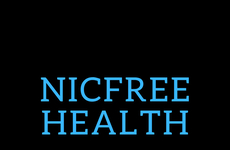
Cornell University's Nicotine Vaccine Curbs the Habit for Good
Sarah Moore — June 29, 2012 — Unique
References: weill.cornell.edu & gizmag
It has been said that quitting smoking can be more difficult than trying to quit heroin, and if the Nicotine Vaccine developed by researchers at Cornell University's Medical College fulfills its promise -- life-long smokers will be able to curb their addition for good.
While thus far it has only been tested on mice, the results have been promising. The vaccine works in the kidneys, pumping the nicotine out of one's body before it has the chance to make it to one's brain and provide that addictive rush that gets people hooked.
The effects of a single dose can last for a lifetime and has also been reported to prevent non-smokers from ever becoming addicted in the first place.
While thus far it has only been tested on mice, the results have been promising. The vaccine works in the kidneys, pumping the nicotine out of one's body before it has the chance to make it to one's brain and provide that addictive rush that gets people hooked.
The effects of a single dose can last for a lifetime and has also been reported to prevent non-smokers from ever becoming addicted in the first place.
Trend Themes
1. Nicotine Vaccine - The development of a nicotine vaccine has the potential to disrupt the smoking cessation market by providing a lifelong solution to curbing addiction.
2. Addiction Treatment - The use of vaccines to target addiction, such as the nicotine vaccine, opens up opportunities for disruptive innovation in the field of addiction treatment.
3. Preventing Addiction - The ability of the nicotine vaccine to prevent non-smokers from becoming addicted presents opportunities for disrupting the tobacco industry by reducing the number of potential customers.
Industry Implications
1. Pharmaceutical - The development and commercialization of a nicotine vaccine could disrupt the pharmaceutical industry by offering a new approach to addiction treatment.
2. Healthcare - The use of vaccines as a potential solution for addiction treatment, as seen with the nicotine vaccine, has the potential to disrupt the healthcare industry by providing innovative treatments for patients.
3. Tobacco - The prevention of addiction through the use of the nicotine vaccine presents a disruptive innovation opportunity for the tobacco industry to reduce the number of smokers and adapt their business models.
2.2
Score
Popularity
Activity
Freshness























